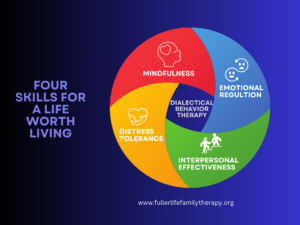Time Out: Working Through Anger in Relationships
Times of anger and frustration are inevitable in every relationship, especially when we care deeply for another person. Anger is a natural response when we feel threatened or have unmet expectations. Our brains are wired beautifully to spot danger a mile away and react instantaneously in order to protect and preserve. Think caveman. If a tiger appears suddenly, adrenaline surges, and in milliseconds the body responds to spear the tiger, jump up a tree, or freeze behind a rock.
Unfortunately, this instantaneous response can create problems in relationships. We desire closeness, but when our needs feel unmet, we sense danger, the danger of disconnection. Our body reacts, adrenaline surges, and suddenly we find ourselves on the attack. When we are in a state of anger it is difficult to think clearly and feel at the same time. We end up hurting the other person and damaging the relationship. After things settle, we often feel regret for our actions.
Awareness is key. Talk to your partner about creating strategies for more successful outcomes in the future.
1. Notice bodily sensations that accompany anger, some of which include:
- heart racing and pounding
- tense muscles
- shaking
- clenching fists or teeth
- breathing quickly
- physical urge to move toward whatever is making us angry
When these sensations are present, the “danger response” is in full swing. It is difficult, even impossible, to think, and we are in react mode.
2. Time Out! It is important to let your partner know what you are thinking: “I care about you and our relationship. I need a time out to cool down, but I promise to come back and work on this issue in _________ minutes.” At least twenty minutes is needed to cool down, sometimes more. Several “cool down” periods may be necessary if anger continues to flare. Negotiate the time that is best for both you and your partner to re-engage. It is important that your partner does not think that you are running away or avoiding the topic. The key features of a time out are:
- I care about you and our relationship.
- I am angry and may say or do something I do not mean.
- I promise to come back and work this out.
3. Breathe. Take a walk. Find someplace quite and focus on slowing your breath. Take time to remember how much you cherish your partner. This is important, and you can meet this challenge.
4. Come back and try again. Practice, practice, practice. We value our partners when we practice time-outs during times of anger.
Rules for Fair Fighting:
- No cursing
- No name calling
- Focus on one issue at a time.
- No use of force
- No throwing
- Listen and hear. Do not interrupt.
- Brainstorm solutions
- Set time limit for discussion. No more than thirty minutes.
Fuller Life Family Therapy is a place where you can explore new ways of relating in relationships if anger is a struggle. We can be a place where you learn new ways of dealing with anger and practice these skills. We can work together to create more connection and acceptance in your daily life.










